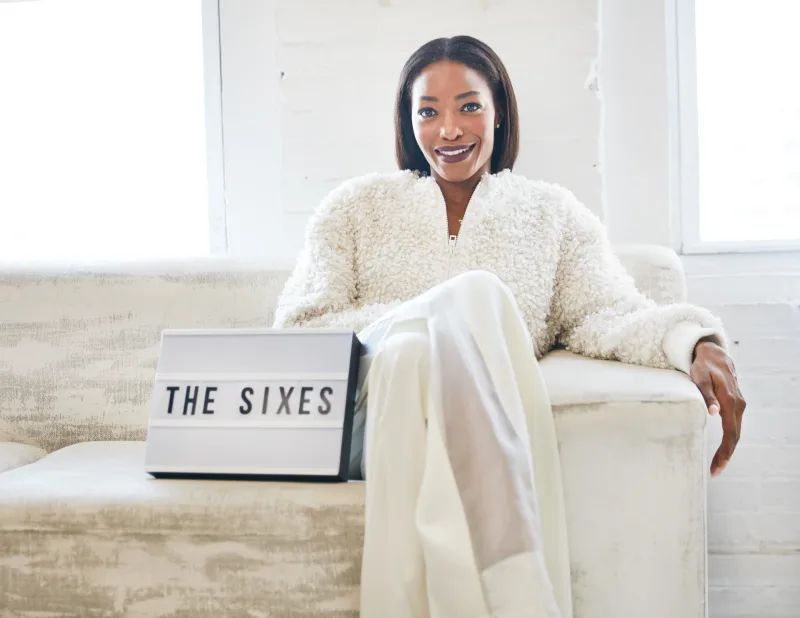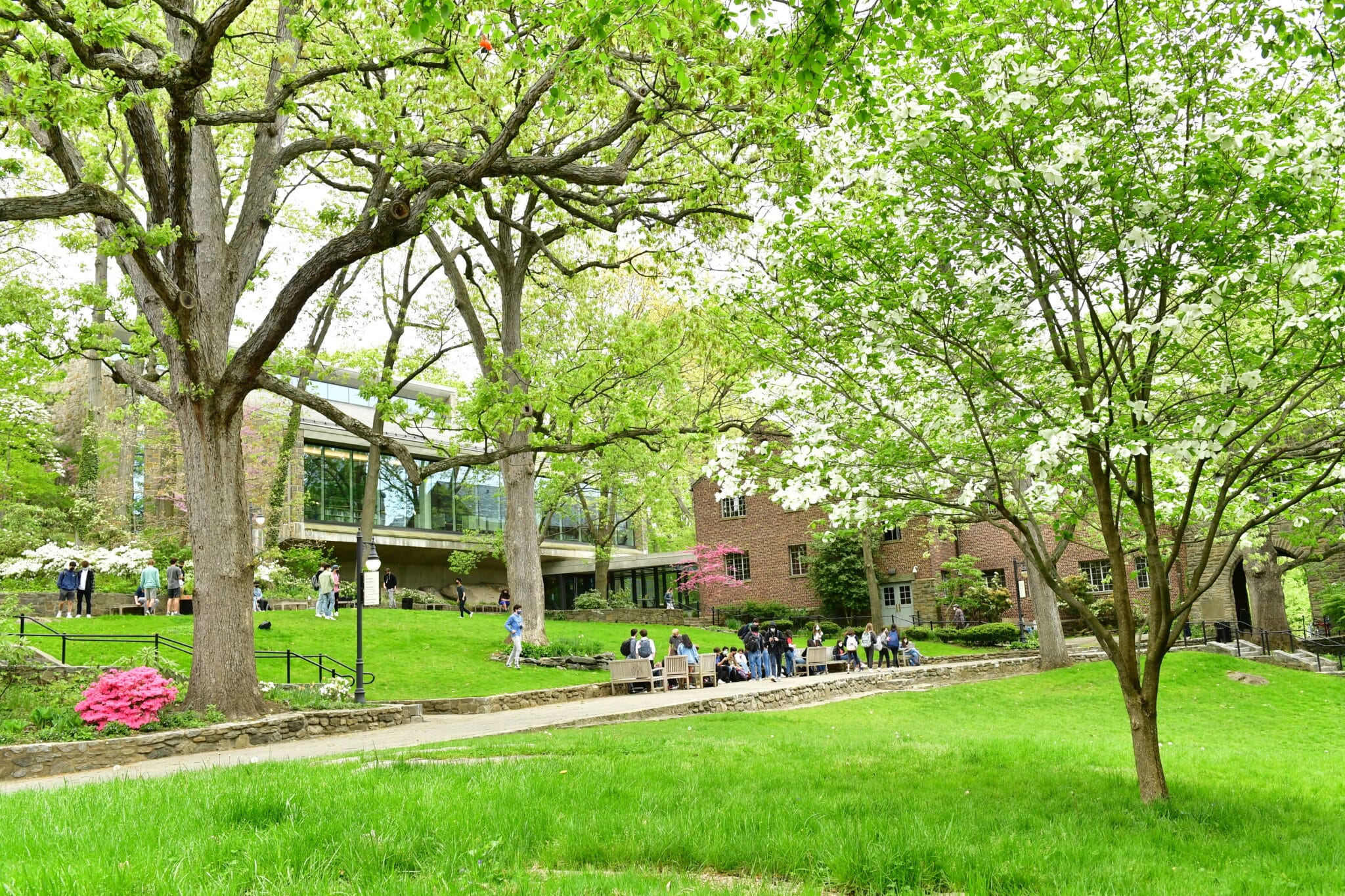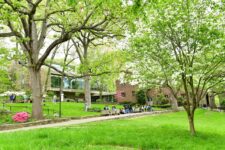Franci Girard ’04 spent six years at Fieldston, from 7th Grade to Graduation. Based in New York City, she’s the founder of The Sixes, a direct-to-consumer e-commerce fashion brand that caters to tall women. Here, we get to know more about her time at ECFS.
What was your favorite food at the dining hall?
I really loved the pasta. The tortellini was my favorite.
How did the education you received at ECFS influence where you are now?
My Fieldston education has influenced me tremendously. The School really delivers on its mission to educate students in traditional subjects but places equal emphasis on the importance of being a moral human being. Over the years, I’ve found that my default in approaching decisions, opportunities, and relationships in my life has been as equally weighted toward being a fair and ethical actor as toward the potential for any personally beneficial outcome.

What advice would you give to a current ECFS student?
First: really buy into the ethical teachings of the institution and try to apply them practically as much as possible until they become a habit. Second: invest in the relationships with the people around you — fellow students, teachers, and administrators. I didn’t really understand it back then, but my time spent at Fieldston was some of the most formative years of my life. There were quite a few people who really poured into my development, and having those people continue to be an important part of my life has provided me with continued guidance, a strong feeling of connection, and at times a useful mirror and opportunity.
What’s a class or teacher that you’ll never forget?
It’s really difficult to choose just one. Part of the reason why my Fieldston experience was so important in my development as a human being was because my teachers were really involved and excellent. In addition to being a phenomenal English teacher, Kate Reynolds really took me under her wing, helped me to become a better writer, and ignited my imagination. Steve Bluth and Collin Henry changed my entire perspective on what I could possibly achieve in my life through discipline, hard work, and sport. Jim Cullen really taught me to think critically, and I remember wanting to be just like him in his outstanding storytelling and public speaking abilities. Laura Clark was able to help me make one of the hardest decisions I was facing in deciding what college to go to. She understood that the process was a deeply personal one and took the time to understand me as a person in order to help me translate everything that I am on paper and during the college process. All of these teachers and advisers unearthed parts of my personality that I didn’t know existed and helped to guide me in becoming the best version of myself. The thing that I’ll always feel a tremendous amount of gratitude for is the fact that they really took an interest in me as a full human being, and it showed.
What causes are you passionate about?
I’m extremely passionate about creating new business opportunities for female entrepreneurs, particularly women of color. Black women are starting companies at a faster rate than any other demographic, but we have the hardest time accessing capital. As an entrepreneur myself, I find
the statistics really daunting. Soon, I will be working against those numbers to raise capital for my company, but I’m also invested in helping to open doors for women like me who are often overlooked when it comes to securing funds.
What are you reading, watching, or listening to these days?
I’m watching “Newsroom” on HBO, which I’m thoroughly enjoying and find to be extremely relevant in today’s political climate. I also thought a lot about the show during the debate series on mainstream media put on by the Fieldston Alumni Network last spring. I’m reading “Homegoing” by Yaa Gyasi, prompted by a trip to the Cape Coast Castle in Ghana, which sparked larger thoughts about my personal legacy as an African-American woman. I’m listening to Snoh Aalegra.
How did you adjust to college?
College was a bit of an adjustment because I ended up going 3,000 miles away to Stanford. Fieldston really felt like a second home to me, and it took some time to find my tribe once I got to college. The great part was that I went early for volleyball preseason, so I had a built-in community with my team. Fieldston also taught me to balance academic rigor and sports, so most of the adjustment had to do with being so far away from home and meeting new friends.
When you meet another Fieldston alum, what’s the first thing you talk about? How can you tell that someone’s a Fieldston alum?
In my experience, alumni are able to strike this balance between confidence and humility really well that is difficult to master. I’ve found that Fieldston alumni tend to be quite understated and grounded. In addition, we feel a strong sense of responsibility to the larger community and world that really ties back to the curriculum and culture at Fieldston having ethics at its core.
What’s been the biggest surprise of your career?
I’ve made some really big transitions in my professional career — from being a professional athlete to financial services to business school and now to being an entrepreneur. I think I’m always surprised by the level of support I receive at each juncture from people who buy into me and not just whatever company or product I’m working on at the time. It’s been a great feeling particularly with building The Sixes.

